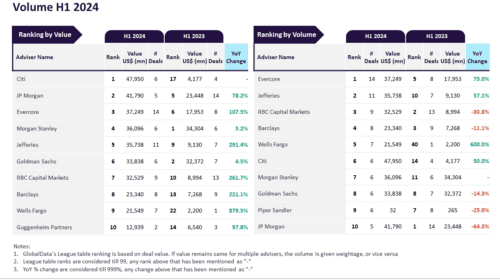Oil sites pose many potential dangers to workers. The heavy operating types of equipment could cause accidents that can lead to injuries. Explosions and fires are also other dangerous things that can happen. Harsh weather conditions in working sites sometimes also present a risk to the employees. Noise, hazardous chemicals, extreme temperatures, and radioactive materials are also other probable threats. These risks and many others could lead to minor or major damages and could sometimes even cause fatalities.
Some working conditions could also be threatening to the staff. Sometimes managers put too much pressure on the workers to maintain high output. They may implement measures like longer working hours, or they may increase working days to improve production. As a result, these factors can cause fatigue to personnel, increasing the rate of errors in the workplace. The faults could, in turn, lead to accidents.
Safety Measures to Protect Oil Workers
Accidents that happen in the oil industry could hugely cost companies and workers. Employees can easily recover from minor injuries and resume work in a few days. However, some incidents may lead to disabilities, and therefore, the capability to return to work is limited. In worse cases, deaths are witnessed. In all these instances, the company may be affected as well. They may experience lowered productivity and losses from the injured employees’ compensation claims.
Injured persons are always encouraged to contact reliable law firms that will fight for their rights in court against their employers. The attorneys will defend you and ensure that you get your workers comp and disability benefit if the accident leaves you impaired.
Companies should therefore re-evaluate their processes and implement procedures that focus more on employee welfare. Alternatively, they can find a balance with efficient policies that benefit staff and also increase output.
Examples of the measures that firms can consider to maximize staff safety and boost production may be:
1. Regular Monitoring of Workers Mental Health
Pressure in the workplace may cause stress. Working in areas far from home can also cause distress to oil workers. More extended working periods, on the other hand, could lead to sleep issues. As a result, you may have employees who struggle mentally due to stress, which could also lead to depression.
A person experiencing stress, depression, or both at the same time is more likely to lose concentration. These factors are highly dangerous in the oil industry. Usually, minute inconsistencies can lead to serious accidents and losses.
It’s therefore essential to monitor mental health at work. Encourage open communication to achieve this. Also, ensure emotional support and provide information on mental health for the workforce. These measures could help prevent the consequences that may occur due to lowered intellectual ability.
2. Holding Safety Meetings and Training
It’s essential to hold safety training for workers. You have to explain the firm’s safety procedures to new employees and subcontractors. In case these policies change, it’s also vital that you alert your staff. A memo may suffice, but meetings are more effective.
Ensure that all workers are trained on first aid procedures. Also, alert them on the nearest stations they can get the kits in case of an emergency. While at it, make sure that the kits are made available in the closest location. They should also be constantly checked and refilled or changed.
To improve engagement in these training and meetings, encourage open communication. Let the staff get acquainted with each other. It’ll help to strengthen connections and build trust amongst workers. In turn, the overall safety in the work area will be improved.
3. Frequent Inspection of Equipment
Inspection of oil industry equipment is also necessary as one of the measures to improve safety in the field. It’s because faulty tools could also cause accidents. It’s advisable to ensure that tools are inspected before and after work to ensure that they don’t pose any danger to workers. Some of the things to check are tool handles, machinery engines, oil pipelines, ladders, storage areas, etcetera.
4. Emphasize Personal Protective Equipment (PPEs)
PPEs contribute significantly to the safety of people who work in areas that present a higher risk to employees. Examples of potential threats in oil fields are high temperatures, moving objects, hazardous chemicals, falls, vehicle collisions, and others.
Everyone in the working area, therefore, has to be protected against these hazards. Some of the PPEs suitable for oil workers are gloves, eye and face protection equipment, visibility gear, hard hats, etcetera.
5. Work With the Nearest Emergency Response Team
In case of major emergencies, you’ll need a response team to help you out. Nurture an excellent relationship with the nearest team and ensure that communication from both sides works efficiently. Also, the crew has to ensure quick and efficient response measures to help with any situation.
6. Performance Appraisals and recognition
Performance appraisal is a technique used by employers to evaluate a person’s output at work. These assessments are done regularly to examine the staff’s skills, accomplishments, and growth rate. The benefit of this process is that managers can quickly identify the performance gaps. From there, they can implement strategies to improve productivity for underperforming employees, like training.
Recognizing good performance in the workplace helps to boost the motivation of workers. You can award the best team with bonuses, vacations, or promotions. Other than monetary gifts, verbal recognition also works effectively to improve the productivity of workers.
7. Hire Qualified Professionals
When hiring field personnel, ensure you check their credentials. It’ll help you understand the tasks they’re most suited for. Qualified experts are likely to reduce the rate of accidents around oil sites since they have sufficient operation knowledge. Ensure that everyone in the field is doing a job they’re well skilled in.
Conclusion
Oil workers need to be protected from the numerous hazards in the workplace. Work-related accidents will, however, affect both employees and the company either minimally or significantly. To avoid injuries and losses, ensure you implement efficient measures around the job site.
One of the processes you can consider is ensuring regular assessment of the workers’ mental health. Holding safety meetings and emphasizing on PPEs will also help. Additionally, make sure that you work with professionals and have contacts for the nearest emergency response team. Output appraisals and rewards will again help motivate workers. Lastly, regularly inspecting work equipment will help to reduce the likelihood of accidents significantly.
Oil and gas operations are commonly found in remote locations far from company headquarters. Now, it's possible to monitor pump operations, collate and analyze seismic data, and track employees around the world from almost anywhere. Whether employees are in the office or in the field, the internet and related applications enable a greater multidirectional flow of information – and control – than ever before.











